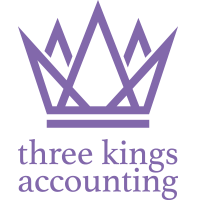New employer
In order to set up a Pay As You Earn (PAYE) scheme with HMRC it is necessary to contact the New Employer’s Helpline on 0300 200 3211 or register online via the GOV.UK website.
As an employer you will be responsible for operating PAYE and calculating National Insurance Contributions (NICs). There are also certain statutory payments you may have to make from time to time which you need to be aware of. These include:
- statutory sick pay (SSP)
- statutory maternity pay (SMP) and
- ordinary statutory paternity pay (OSPP)
- shared parental pay (ShPP).
A vast amount of information is available on the GOV.UK website detailing the operation of PAYE together with online calculators these can be accessed as part of the HMRC Basic PAYE tools at www.gov.uk/business-tax/paye
If requested HMRC will send you several booklets and tables to enable you to make the relevant deductions and payments to your employees. However, the majority of employers use the HMRC Basic PAYE tools or equivalent software.
Real Time Information reporting
Employers, or their agents, are generally required to make regular online payroll submissions for each pay period during the year detailing payments and deductions made from employees on or before the date they are paid to the employees.
More detailed guidance and information on operating your payroll under Real Time Information can be found at www.gov.uk/paye-for-employers or in our Payroll Real Time Information factsheet.
What tax do I have to deduct?
By using the calculators provided on HMRC’s website or equivalent software, you should be able to calculate the tax and NICs due in respect of your employees.
The tax due for a particular employee is calculated by reference to their gross pay with a deduction for their tax free pay which reflects their particular circumstances (using their coding notice and the pay date). The remainder of the pay is subject to tax and this is calculated using the Basic PAYE tools or software.
Tax is generally calculated on a cumulative basis, looking at the individual’s circumstances for the tax year to date.
What about NICs?
NICs are payable by the employee and the employer on the employee’s gross pay for a particular tax week or month and are calculated on a non cumulative basis. The NICs can be calculated using the HMRC Basic PAYE tools or equivalent software.
When do the tax and NICs have to be paid to HMRC?
The tax and NICs should be paid to HMRC by the 19th of the month following the payment. Tax months run from the 6th to the 5th of the month, so if an employee was paid on 25 July (tax month being 6 July to 5 August) the tax and NI would need to be paid over to HMRC by 19 August.
Any employer can pay electronically, if they wish, taking advantage of the cleared electronic payment date of 22nd as opposed to the usual 19th.
Employers whose average monthly payments are less than £1,500 are allowed to pay quarterly rather than monthly.
Large employers, with more than 250 employees, must pay tax and other deductions electronically.
Forms you will need to complete
You will need to complete the following forms or maintain the equivalent digital records:
- P11 Deductions working sheet
This form (or a computer generated equivalent) must be maintained for each employee. It details their pay and deductions for each week or month of the tax year. - P60 End of year summary
This form has to be completed for and given to all employees employed in a tax year. - P45 Details of employee leaving
This form needs to be given to any employee who leaves and details the earnings and tax paid so far in the tax year. New employees should let you have the form from their previous employer. - Starter Checklist
When a new employee starts you will need to advise HMRC so that you can pay them under RTI. Some of the necessary information may be obtained from the P45 if the employee has one from a previous job.
Penalties
HMRC impose penalties on employers who fail to:
- make the online submissions on time
- pay the liabilities on time
- keep the necessary records
- operate PAYE or NI correctly
- make the correct statutory payments
- provide HMRC or the employees with the relevant forms on time.
It is important that employers comply with all the regulations.
Automatic enrolment pensions
Automatic enrolment places duties on employers to automatically enrol ‘workers’ into a work based pension scheme from a specified ‘staging date’. The main duties are:
- assess the types of workers in the business
- provide a qualifying automatic enrolment pension scheme for the relevant workers
- write to most of their workers explaining what automatic enrolment into a workplace pension means for them
- automatically enrol all ‘eligible jobholders’ into the scheme and pay employer contributions
- complete the declaration of compliance and keep records.
More information on Pensions – Automatic Enrolment can be found in the factsheet.
How we can help
The operation of PAYE can be a difficult and time consuming procedure for those in business. We will be happy to show you how to operate PAYE correctly, offer ongoing advice on particular issues, or to carry out your payroll for you so please do contact us.


